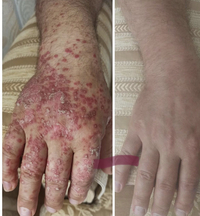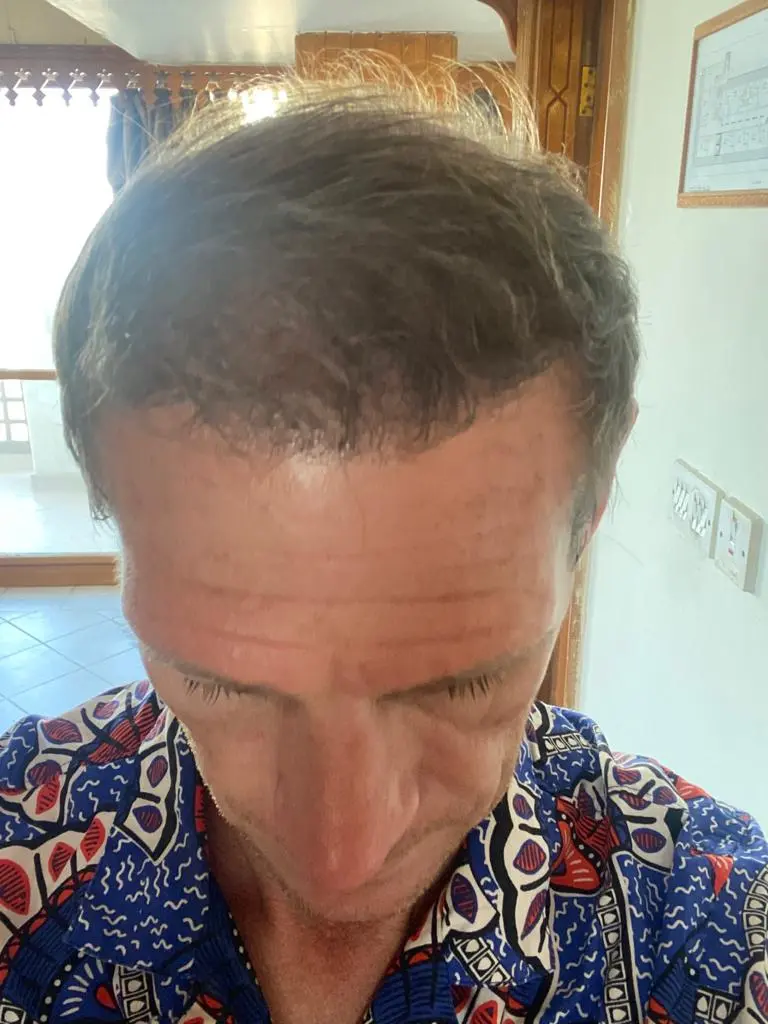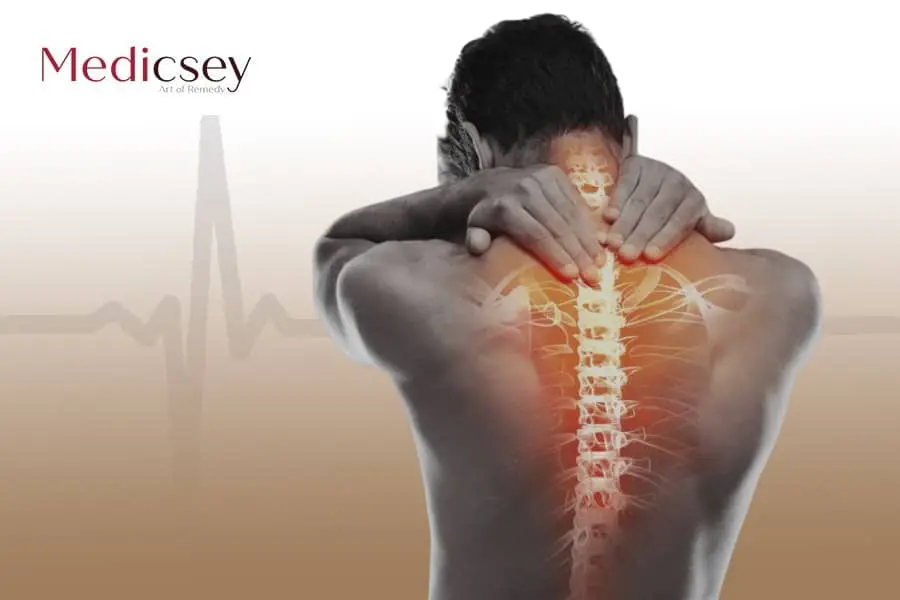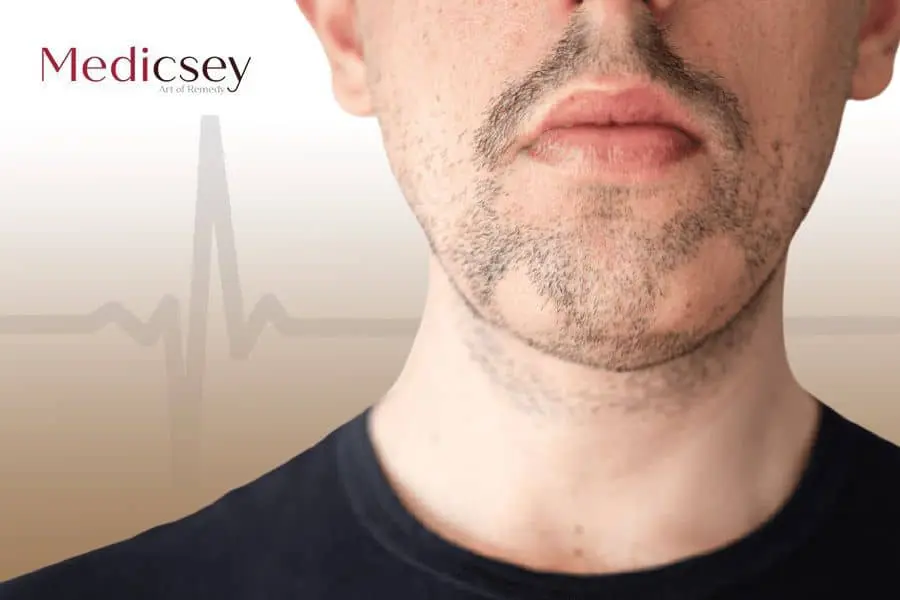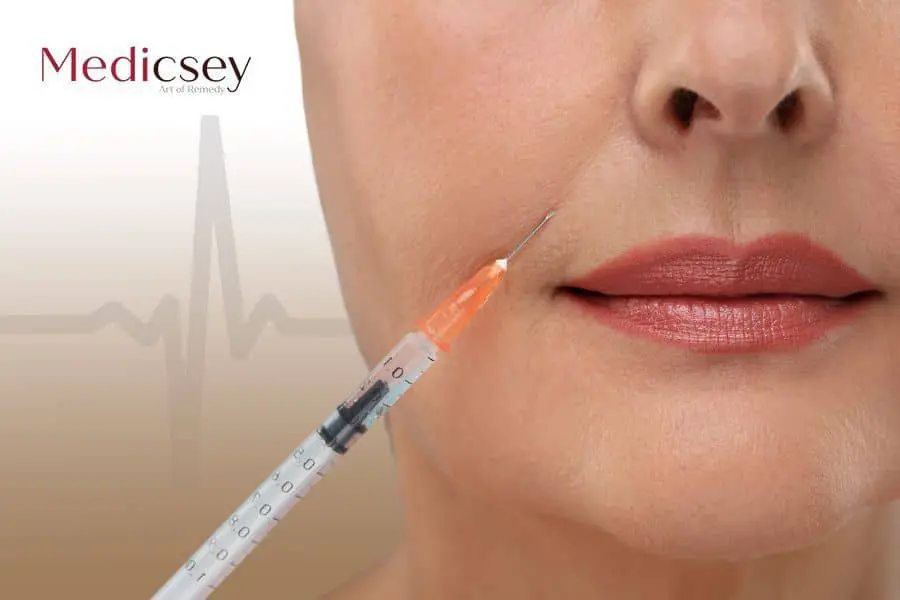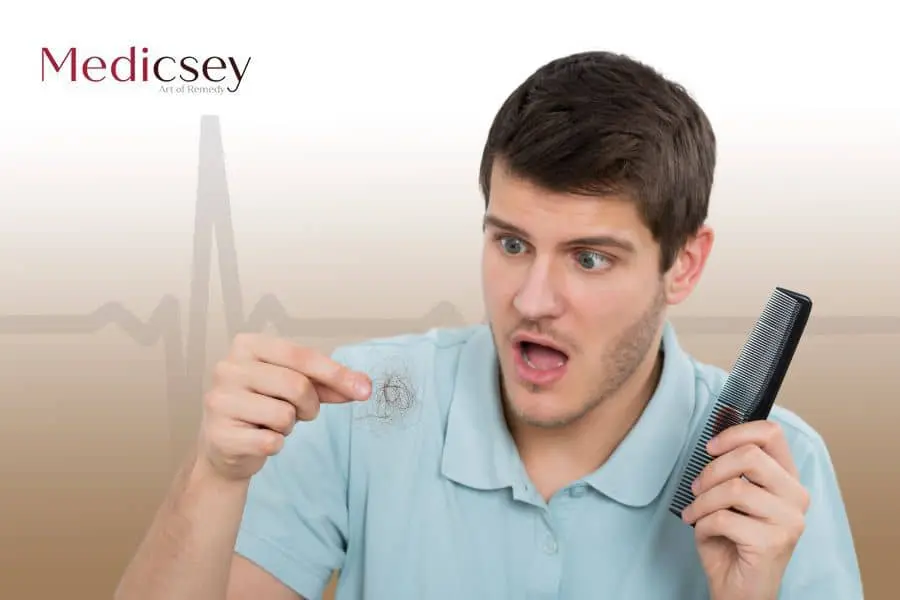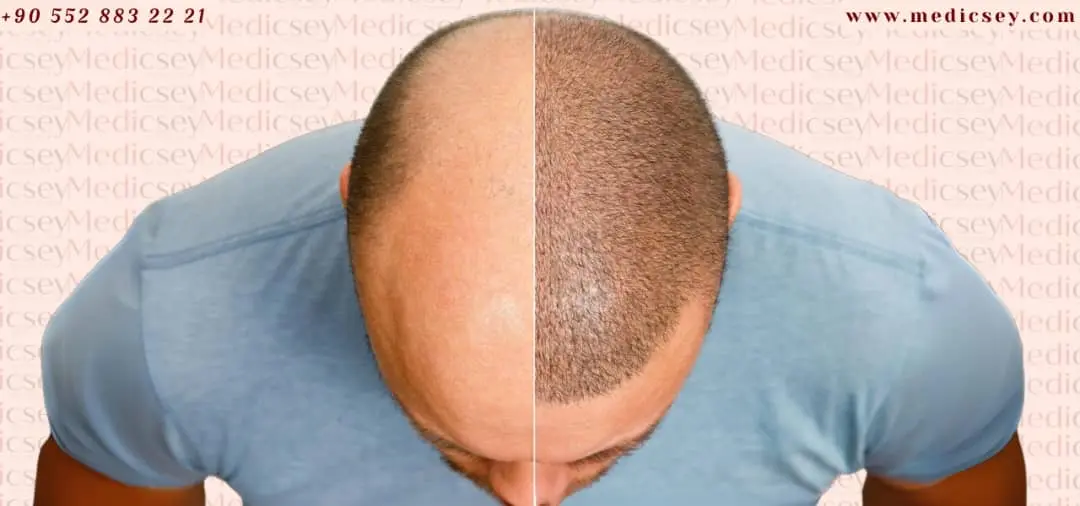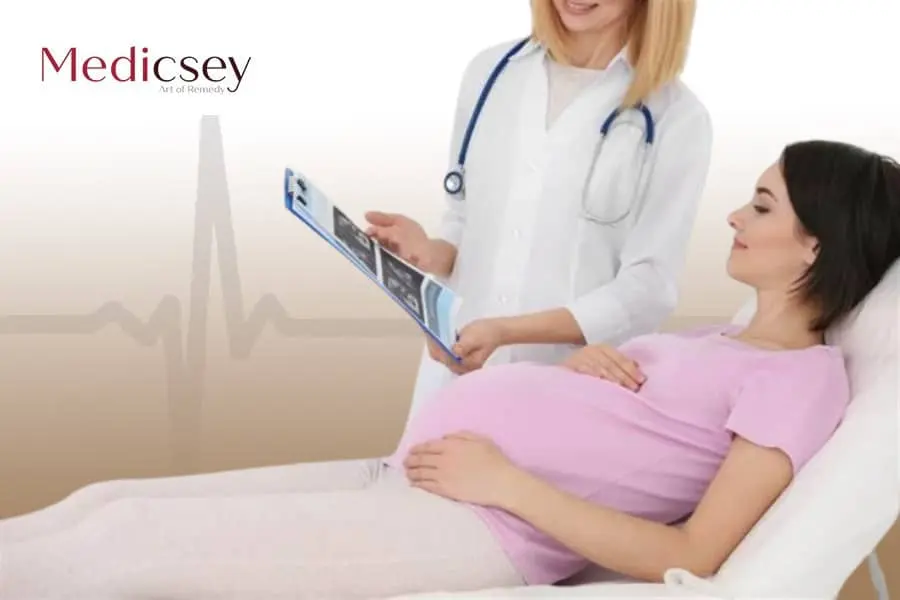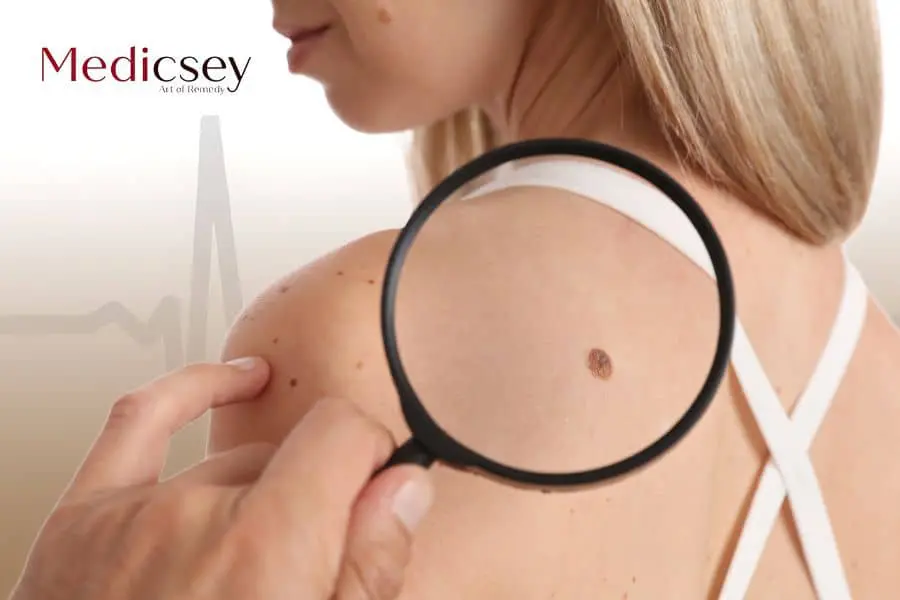A herniated disc affects the vertebrae of the spine. which causes severe pain that may prevent the person from moving normally. so speeding up the diagnosis and treatment of the cause of the disc is one of the most important factors to get rid of this problem.
Table of Contents
What is a herniated disc?
The spine consists of a group of vertebrae. between the vertebrae there are circular discs that absorb shocks and help you move freely without pain. but when these discs are affected and cut, this condition is called a herniated disc.
Herniated discs usually affect people between the ages of 30 and 50 and affect men twice as often as females.
Types of herniated disc
A herniated disc can be divided according to the type of disc between the vertebrae of the spine into three degrees. and the slippage can be named according to the location of the affected vertebrae. and the degree of herniated disc is divided into:
- The first degree: in which the pulpal nucleus protrudes into the vertebral canal. occupying the center of the disk in the center of the fibrous ring. without the posterior longitudinal ligament. and the fibrous ring is the part that connects the bodies of one of the vertebrae . of the vertebrae of the spine and is in the form of a ring. and is composed of elastic fibers that envelop the pulp nucleus. The herniation of the pulposal nucleus on the median line is single, multiple, or may be lateral.
- The second degree: in which the fibrous ring rupture occurs and part of it comes out with the nucleus to the vertebral canal.
- Third degree: in which the exit of the disc content to the vertebral canal occurs through the torn longitudinal ligament.
Causes of herniated disc
There are many causes of herniated disc as follows:
- Lifting something heavy and compressing the vertebral bodies heavily. so too much pressure on the discs between the vertebrae of the spine displaces them. and irritates the surrounding nerves. Spraining when lifting objects also increases the risk of herniated discs.
- Progressive age-related wear is called disc degeneration. because with age the discs between the vertebrae of the spine lose part of their components of water. making them less flexible and prone to rupture even with light effort or bending.
- Pregnancy in women, it is possible that a herniated disc in the back occurs as a result of pregnancy.
- It is possible to slip the cartilage of one of the vertebrae of the spine due to a traumatic event, such as a fall.
- The patient may develop a herniated disc without knowing. as herniated discs may appear in the form of x-rays of the vertebrae of the spine for people. who do not suffer from any signs of a herniated disc.
Risk factors for disc or herniated disc
There are many factors that increase the chance of developing a herniated disc, including:
- Weight: Excess weight puts excessive pressure on the discs between the vertebrae of the spine in the lower back.
- Occupation: People who work in professional jobs that require great effort. are more likely to suffer from back problems, and the risk of developing a herniated disc.
- Genetic factors: Some people inherit a chance of developing a herniated disc.
What are the symptoms of a herniated disc?
The signs of a herniated disc vary according to the location of the slipped disc, where simple cases of slippage may not show any symptoms. while in severe cases of these symptoms may hinder the activities of their daily lives, these symptoms include:
- Low back pain continuously.
- Stiff legs or stiff lower back.
- Pain while pressing on the lumbar area.
- Pain in the groin.
- Difficulty walking or standing for long periods.
- Pain when bending.
- Numbness in the feet.
- Neck pain, difficulty in head movement.
- Numbness in the arm or hand.
What are the complications of a herniated disc?
A herniated disc can lead to many observations such as:
- Chronic back pain.
- Permanent nerve damage.
- Weakness and inability to practice daily activities.
- Paralysis of the legs.
- Spinal infection occurs in rare cases.
- The presence of convexity.
- Equine Guilt Syndrome When the nerve roots in the lumbar region are subjected to pressure from the vertebrae. this causes loss of feeling in the legs, affecting the bladder, and if not treated. it may lead to complete paralysis, or loss of the ability to control the bladder completely.
Can a herniated disc be prevented?
Some steps can be taken to reduce the incidence of herniated disc, including:
- Exercise to strengthen the abdominal and back muscles.
- Follow a healthy diet.
- Maintain an appropriate weight and be careful not to gain excess weight to prevent excessive load on the muscles of the back and spine.
How is a herniated disc diagnosed in Turkey?
The best orthopedic doctor in Turkey diagnoses a herniated disc process in Turkey through a physical examination. He examines the back and neck, as well as a neurological exam that includes a reflex test and the ability to walk.
But in other cases, your doctor may order additional tests if the slippage begins to affect the nerves. Tests include:
- CT scan.
- X-ray imaging.
- Magnetic resonance imaging.
- Bone marrow imaging.
- Electromyography: The doctor inserts a needle under the skin to reach several muscles. in order to evaluate the electrical activity of the muscles at rest and when they contract.
- Nerve conduction test, which helps to measure electrical nerve impulses and the efficiency of nerves and muscles.
The doctor evaluates the results and selects the appropriate treatment plan.
Herniated disc treatment in Turkey
There are several treatments that contribute to alleviating the symptoms of a herniated disc, including the following:
Non-surgical treatment
Non-surgical treatment helps relieve pain and includes:
- NSAIDs: examples include ibuprofen and naproxen.
- Physiotherapy: A range of exercises can be done to strengthen the abdominal and back muscles.
Relax and take a break: Taking enough rest may help relieve back or foot pain, but prolonged rest is not recommended.
- Injection in the back area: Injecting a cortisone-like substance into the area that surrounds the nerve, which helps relieve pain.
Surgical treatment
A number of patients may need surgery to reduce symptoms, especially if the following symptoms are present:
- Muscle weakness.
- Inability to walk.
- Urinary incontinence.
The operation is done by making a small incision in the back area to remove the sliding part of the cartilage. which relieves pressure on the spinal nerves. Surgical treatment is followed by rehabilitation and training to restore muscle flexibility and strength.
There is a 5-10% risk of herniated disc recurrence, both surgical and non-surgical treatment.
Cost of herniated disc surgery in Turkey
Turkey has a very high level of extensive experience of its doctors, the infrastructure of its hospitals and the medical services it provides. In addition, the cost of herniated disc surgery in Turkey is very low compared to other countries.
Is a herniated disc a medical emergency?
A herniated disc is often not an emergency that requires immediate treatment. but rarely triggers a condition called cauda equina syndrome. which, if left untreated, can cause movement problems and urinary incontinence.
Thus, we have learned about Herniated disc treatment in Turkey if you have any questions. Do not hesitate to contact Medicsey Center now. and you will find the medical team of Medicsey Center ready to assist you at all times Contact.
read more: Hip replacement surgery in Turkey




